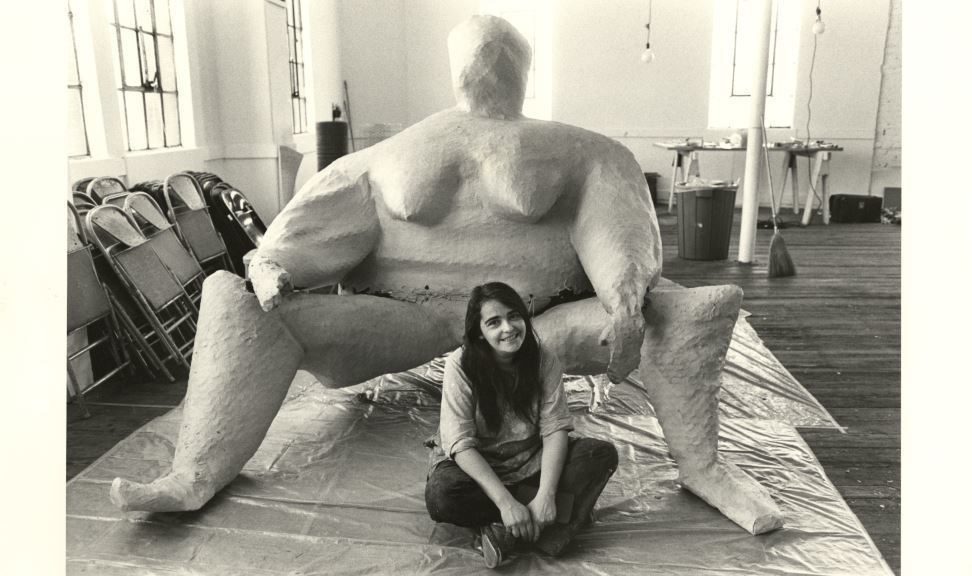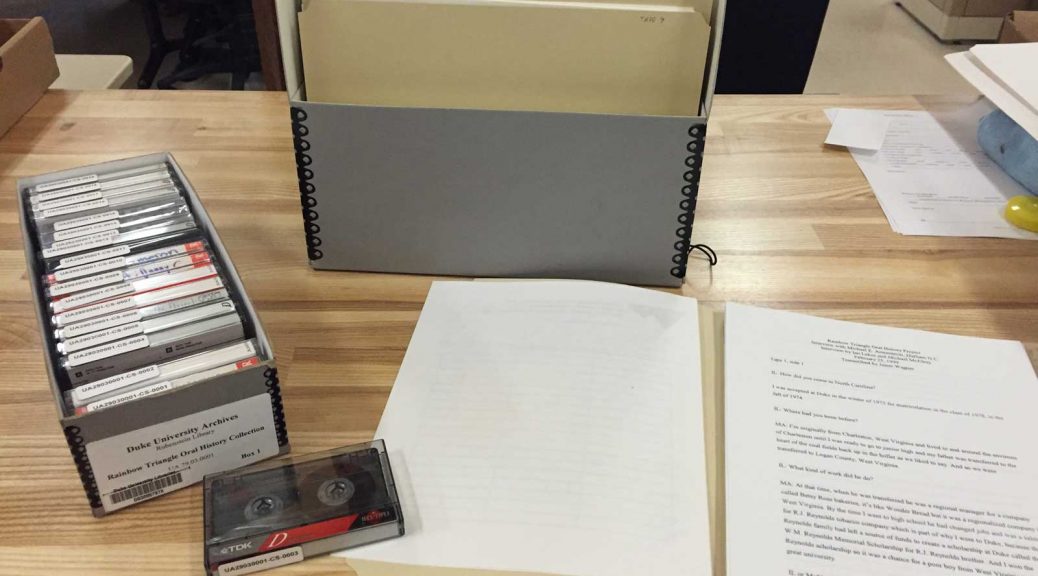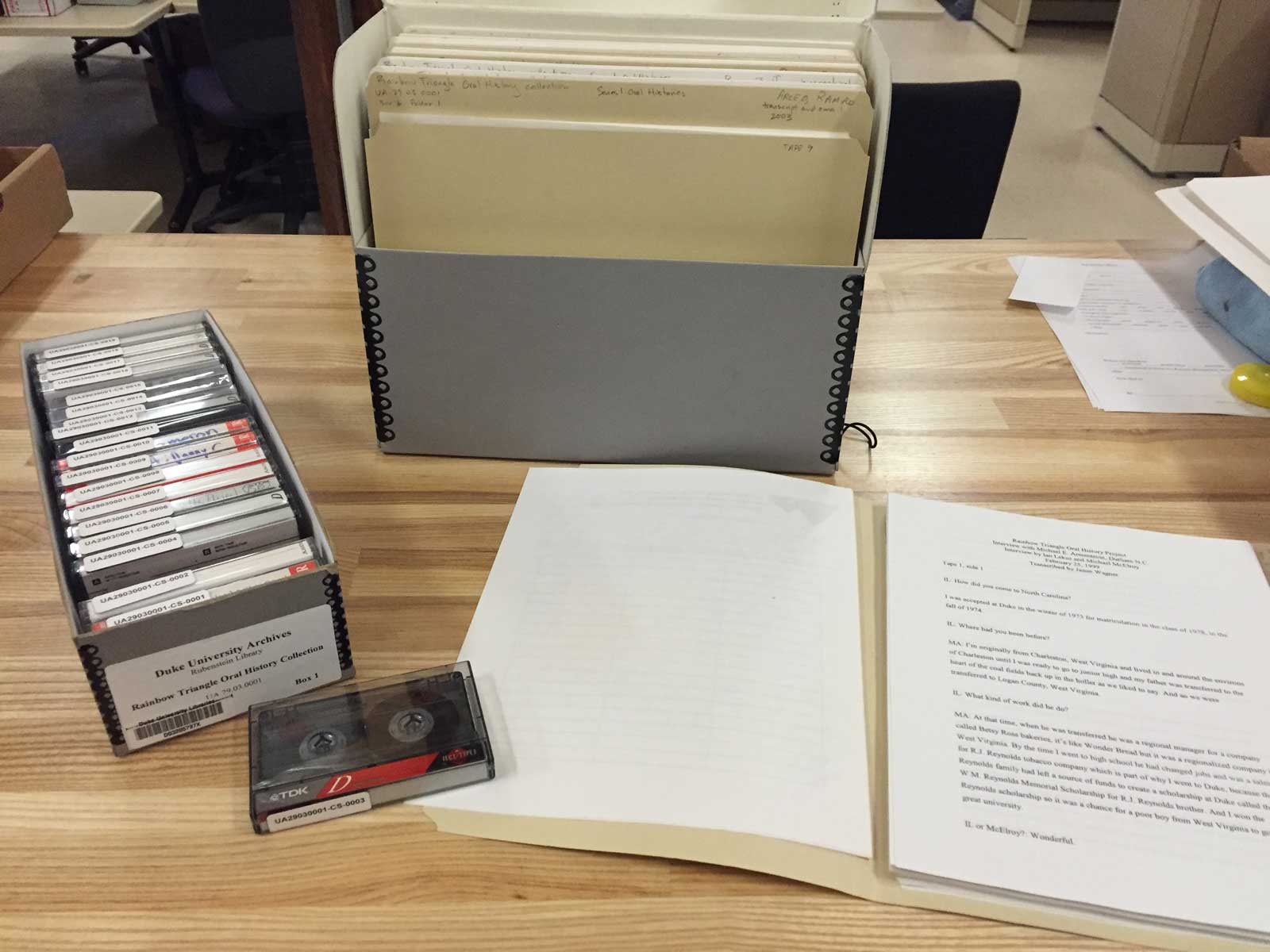Post contributed by Kelly Wooten, Laura Micham, and Laurin Penland.

We were saddened to learn of Kate Millett’s passing on September 6, 2017. As many people have been writing and speaking about her legacy, we realized we are not alone in trying to grapple with the significance of her contributions to the feminist movement, to the creation of feminist theory, to the art world, to writing, to LGBTQ activism, to advocacy for mental health reform, and to many, many other realms. Here at the Rubenstein Library, her papers have been at the heart of the Bingham Center’s collections since 2000, and have inspired much scholarship, enhancing our understanding of the world.
The Kate Millett papers in the Sallie Bingham Center provide rich documentation of Millett’s activities as a feminist activist, artist, and author. These materials reflect the intensely personal nature of much of Millett’s work and the frequent fusion of her personal, political, and professional interests. Materials in the collection also cover feminism and the social conditions for women around the globe, especially in France, Italy, and the Middle East—most notably Iran, where Millett traveled in the seventies.

Many researchers have been moved by their encounters with the writings and artwork of Kate Millett in her papers. Dr. Michelle Moravec, Associate Professor of American History and Women & Gender Studies at Rosemont College, writes:
“Working in a person’s archived papers is always an intensely intimate experience, but in Millett’s case the resonances are amplified by the emotional reactions she left scrawled across her papers. ‘Ridiculous!’ she pronounced in a scrawling red hand, across a tedious letter regarding a speaking engagement. ‘That awful Barnard thing goes on’ she sniffed in response to a request to publish her presentation from the Scholar and the Feminist Conference IX: Towards a Politics of Sexuality. Interspersed are flashes of Millett’s intellectual process, dashed off notes for one of her many lectures proclaims ‘We now have to dare everything… Writing our lives… Break every taboo.’ Long handwritten letters attest to her poignant longing to create an artistic community at The Farm, an art colony she created, the economic struggles all too familiar to female artists and writers who did not become academics, and her engagement with deeply difficult material including sexual abuse and torture.”
Born in 1934 in St. Paul, Minnesota, Kate Millett was an internationally acclaimed artist, writer, and activist. A founding member of the Noho Gallery in New York City, Millet created the Women’s Art Colony Farm in Poughkeepsie, NY in 1978, and had shown her work internationally since 1963. She was known for her sculpture and installation works in addition to pen and ink drawings both abstract and figurative. Millet’s Columbia University Ph.D. dissertation, Sexual Politics (1970), placed her at the forefront of the women’s movement. Her other political works include The Prostitution Papers (1973), The Basement (1979), Going to Iran (1979) and The Politics of Cruelty: An Essay on the Literature of Political Imprisonment (1994). Millett also wrote a series of memoirs that combine deeply felt personal revelation with trenchant political analysis. These include Flying (1974) about her early years, Sita (1977) and Elegy for Sita (1979) the story of a tragic romantic relationship, The Loony Bin Trip (1990) Millett’s exposé of the mental health system, A.D., A Memoir (1995) in which she reflects on her early life, and Mother Millett (2002) a meditation on her upbringing in middle America and her experience as an activist and then outcast from the movements she helped to form and lead.
In these books Millett gave her readers the analytical tools and inspiration for making a revolution. Her words, such as these from Sexual Politics, will continue to resonate, “For to actually change the quality of life is to transform personality, and this cannot be done without freeing humanity from the tyranny of sexual-social category and conformity to sexual stereotype—as well as abolishing racial caste and economic class.”

Many moving tributes have been published in newspapers, on websites, and on social media such as this one by Gloria Steinem on Facebook: “As Andrea Dworkin said, ‘The world was asleep, but Kate Millett woke it up.’ Sexual Politics—and all Kate’s work—will keep us Woke.” The impact of Kate Millett’s life and work cannot be overstated.





